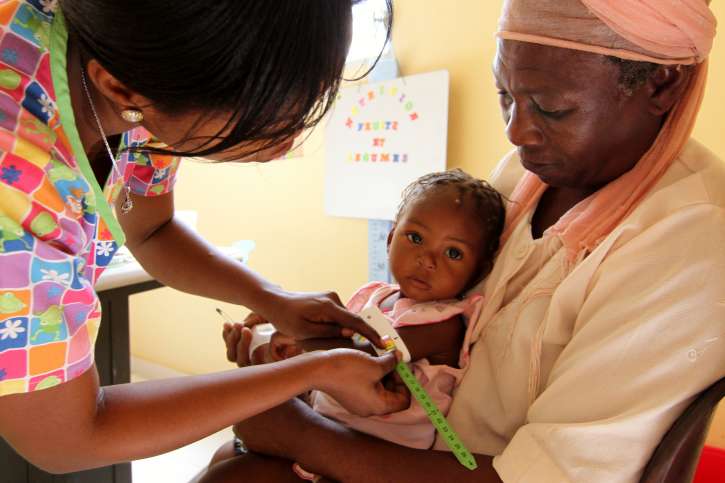You are here:
Food security

© action medeor
The human right for food is violated all over the world in billions of cases. The consequences this has on the development and health especially of children are disastrous.
Over recent years, fighting hunger increasingly gained importance on the political agenda. On April 1st, 2016, United Nations announced the Decade of Action on Nutrition. By 2030 hunger shall be eradicated all over the world.
The current situation tells a different story: about 800 million people are hungry, two billion are malnourished. Many of them suffer from undetected malnourishment due to insufficient intake of vitamins and micronutrients. This “hidden hunger” often occurs among women, children under the age of five as well as peasant farmers.
If an unborn child suffers from malnourishment before being born, the disadvantages in physical and mental health can hardly be compensated for in later years. Hunger and malnourishment are direct consequences of a qualitatively and quantitatively insufficient diet. In many cases food is not available all year round, especially in regions affected by natural disasters or in war situations. Further reasons for people not being able to eat sufficiently and versatilely enough are restricted access to markets or people suffering from recurring infections. However, in the first instance hunger is a direct consequence of poverty and social inequality.
In alliance with local partner organizations action medeor works to fight the complex causes of hunger as widespread as possible. Supplying high-caloric food in emergency situations, teaching people to install kitchen gardens, special food programs in mother-child-clinics as well as supplying seeds and livestock to peasant farmers in combination with training programs are different elements of a complex strategy to strengthen people’s ability to fight crises and enable them to secure their long-term supply by themselves.